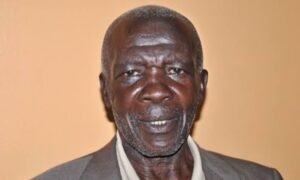What you need to know:
- In the heart of Jinja, at the helm of educational leadership, Hajji Swaibu Kitezala, Chairperson of Directors of all private schools in Busoga sub-region, offers a candid reflection on the evolving educational landscape.
- In conclusion, the journey towards educational excellence in Busoga is marked by challenges and triumphs, with leaders like Hajji Kitezala paving the way forward through pragmatic leadership and a commitment to student-centered education.
Insights from Hajji Swaibu Kitezala
In the heart of Jinja, at the helm of educational leadership, Hajji Swaibu Kitezala, Chairperson of Directors of all private schools in Busoga sub-region, offers a candid reflection on the evolving educational landscape. Recently, he discussed the challenges and opportunities presented by the new lower secondary education curriculum, shedding light on its practical implications and the financial strains it imposes on institutions.
Introduced by the government in February 2020, the new curriculum aims to cater better to learners’ needs, emphasizing skills training alongside traditional academics. However, as Hajji Kitezala points out, its implementation isn’t without hurdles, particularly for schools facing financial constraints. “Every institution that is having a problem of money or cash is going to face it rough because you cannot run this curriculum without money,” he emphasized during our interview.
At Jinja Progressive SS, where Hajji Kitezala also serves as director, proactive strategies have been employed to navigate these challenges. These include targeted teacher training, practical skill development initiatives, and optimizing resources to align with the curriculum’s demands. Students, too, are actively engaged in practical applications of their learning, from producing chalk and liquid soap to agricultural projects like banana plantation management.
Insights from Hajji Swaibu Kitezala
The transition to a competency-based curriculum hasn’t been seamless. Hajji Kitezala highlighted concerns about the sustainability of lavish proms, which he believes detract from the educational mission. “The parties shouldn’t be banned but scaled down,” he suggested, emphasizing the need for events that reflect educational values rather than becoming showcases for affluence.
Looking ahead, Hajji Kitezala anticipates challenges in the transition from lower secondary to ‘A’ level education. Students accustomed to a competency-based approach may find the knowledge-heavy ‘A’ level curriculum daunting. “The depth of knowledge and current requirements for ‘A’ level are too heavy for a competence-based product of Senior Four,” he observed, underscoring the need for alignment across educational stages.
In Busoga, educational leaders like Hajji Swaibu Kitezala embody resilience and adaptability amidst educational reforms. They navigate financial constraints, innovate within curriculum frameworks, and steer institutions towards holistic educational goals. As Busoga prepares its youth for a future shaped by both tradition and innovation, Hajji Kitezala’s insights serve as a beacon of guidance and reflection for educators and stakeholders alike.
In conclusion, the journey towards educational excellence in Busoga is marked by challenges and triumphs, with leaders like Hajji Kitezala paving the way forward through pragmatic leadership and a commitment to student-centered education.

Do you have a story or an opinion to share? Email us on: info@falconposts.com Or follow the Falconposts on X Platform or WhatsApp for the latest updates.











